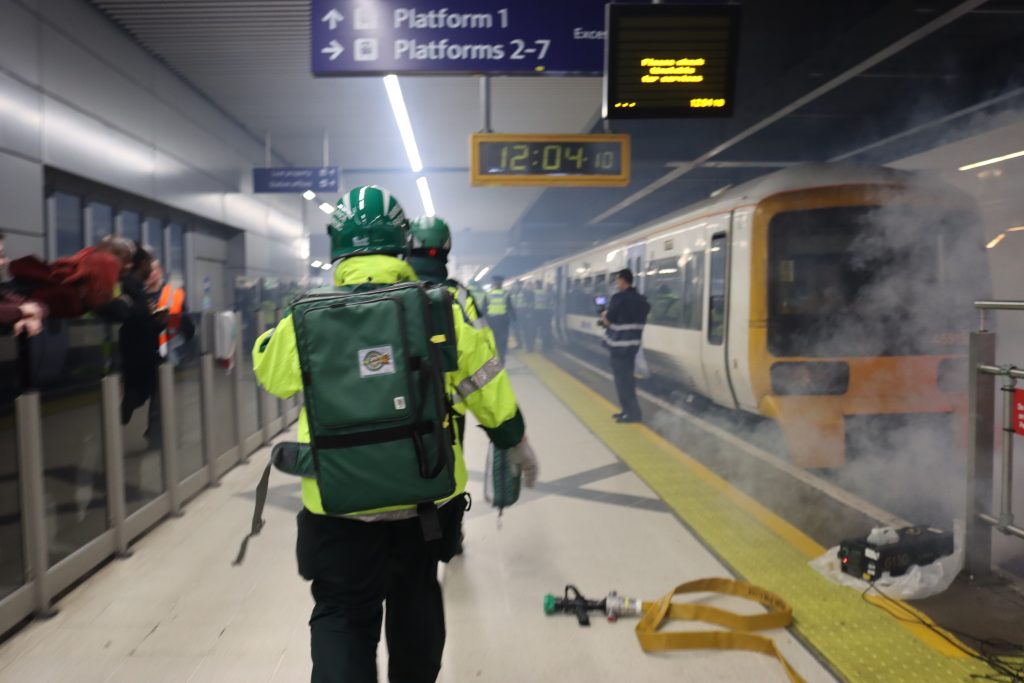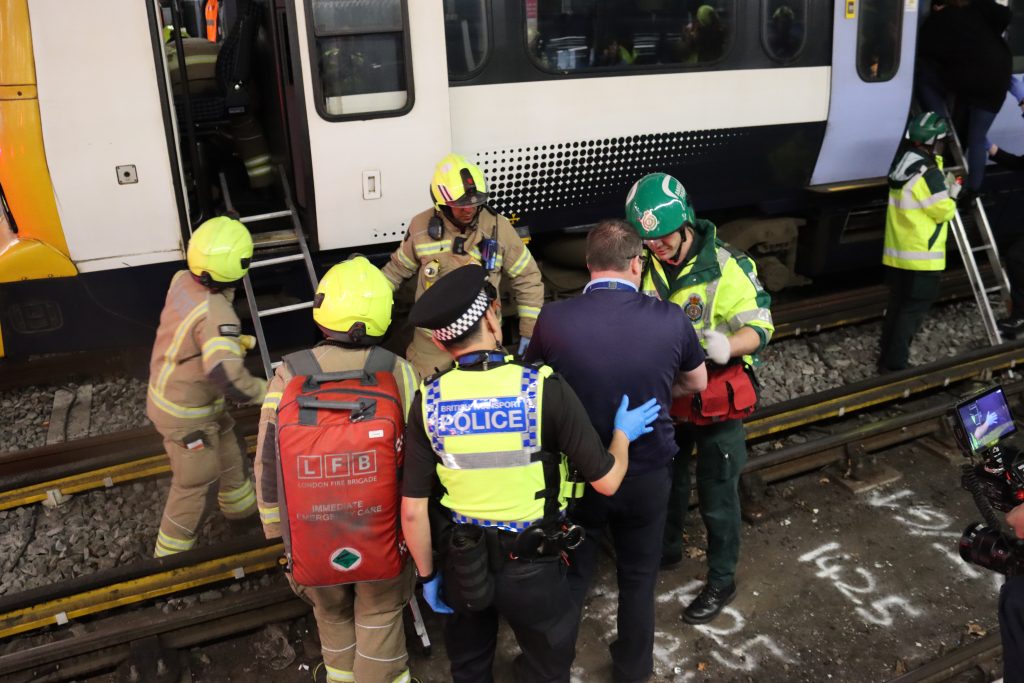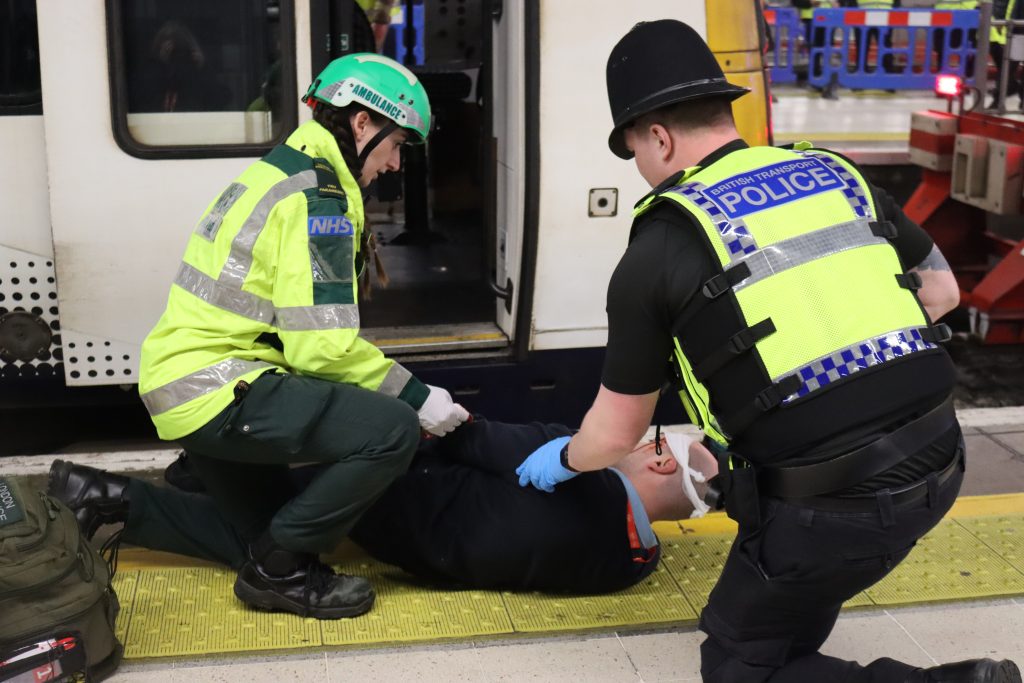Paramedics treat patients during a harrowing terrorist attack and train crash in training exercise
London Ambulance Service teams have collaborated with emergency services partners to test how we respond to major incidents, with two live exercises featuring a terrorist attack and a train crash.

The two exercises involving all emergency services are part of a routine programme to test our tactics and ensure multi-agency plans to a range of scenarios are as effective as they can be.
Last Wednesday (19 March) paramedics took part in an exercise alongside London Fire Brigade and Metropolitan Police counterparts which recreated the horror of a terrorist incident where attackers aim to kill or injure as many people as possible – known as a marauding terrorist attack – at the JobServe Community Stadium in Colchester.
And on Sunday (23 March) London Ambulance Service crews trained at a simulated train crash at Cannon Street Station alongside colleagues from British Transport Police and the London Fire Brigade. This exercise mirrored the tragic accident at the station in 1991, and there was a minute silence undertaken by all exercise staff and volunteers out of respect for the two who were killed, and those impacted by the 1991 crash.

Natasha Wills, Director of Resilience and Specialist Assets at London Ambulance Service, said: “While we hope these sorts of events never happen, London needs us to be prepared for any eventuality.
“These exercises give us the opportunity to test our tactics and ensure we can provide the best possible care for Londoners in complex and fast evolving situations.
“Our resilience and specialist assets teams are experts in planning for major incidents, including leading our participation in multi-agency exercises and implementing relevant recommendations from inquiries, for example, the Manchester Arena attack.”
London Ambulance Service has a range of specialist medics that are equipped with bulletproof vests, helmets and trauma kits so they can care for multiple patients quickly in a high-threat incident. Specialist teams include paramedics from the tactical response unit (TRU) and specialist operations response teams – ambulance crews that are trained to respond in the event of a major incident.

The Service’s Hazardous Area Response Teams (HART) comprise paramedics trained and equipped to treat patients in hazardous and high-risk environments, such as at height, in water, in building sites, and in collapsed structures such as after a gas explosion. The team respond to over 8,000 incidents a year.
They undertake extensive training each year to respond to such incidents and provide optimum patient care, regardless of where the patient is.
Last year, London Ambulance Service was awarded the contract to host the NHS Emergency Capabilities Unit for the next four years, following a competitive tendering process.
The Service will work with NHS England and specialist resilience teams across the country to ensure the ambulance service can respond to a range of hazardous and high threat incidents to keep the people of London and the rest of the country safe.

Follow us on social media: